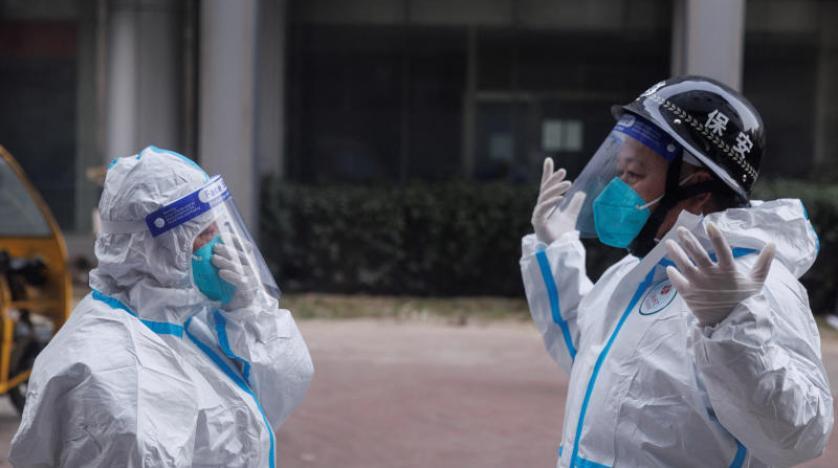MISCELLANEOUS
Wed 15 Mar 2023 10:04 pm - Jerusalem Time
Chinese cities are easing anti-COVID-19 restrictions
BEIJING (AFP) - COVID-19 restrictions are being eased in a growing number of Chinese cities, including Beijing and Shanghai, with shops reopening and testing requirements lifted in many places, after a week of unprecedented protests.
In the capital, which has a population of 22 million, many shops have reopened over the past two days, and residents can use shared transportation again on Monday without having to present a negative PCR test result conducted within less than 48 hours.
The same measure was adopted in Shanghai, where the requirement for an entrance examination to some public places such as parks and tourist sites was lifted.
A strict lockdown was imposed in Shanghai, a major financial center with a population of 25 million, for more than two months in the spring when a cluster of Covid infections was recorded, in a measure that did not win popular support and had repercussions on the country's economy.
A week ago, this anger that had languished for months over the very strict “zero Covid” policy came out into the open with demonstrations in about a dozen Chinese cities of an unprecedented size since the pro-democracy rallies in Tiananmen Square in 1989.
This policy has been adopted for nearly three years and has radically changed the lives of citizens, with frequent closure decisions and large-scale PCR checks on an almost daily basis during 2022.
Soon, these demonstrations, in which students participated in particular, took on a political dimension if some called for the departure of Chinese President Xi Jinping.
In response to these protests, the authorities began easing restrictions, a decision welcomed by the World Health Organization.
The Chinese president personally acknowledged that the less lethal variant, Omicron, "opens the door to greater flexibility in restrictions," according to statements by the President of the Council of Europe, Charles Michel, who visited Beijing last week, and was reported by a European official.
Last month, China published a list of measures aimed at achieving "the best results" in its health policy and downplayed the importance of the socio-economic repercussions, but its implementation at the local level was uneven.
And while the Chinese economy is expected to record one of the worst growth in four decades this year, the exit from the “zero Covid” policy remains a sensitive matter.
"Finding a balance between measures to control COVID-19 and economic growth has returned to the central issue," said economist Wang Jie, who commented Monday on the poor results of the service business.
"The central government a short time ago set clear conditions on how to achieve better results (in health policy). However, whether or not local authorities implement these directives will be decisive," he added.
Near Shanghai, the city of Hangzhou announced it was ending mass diagnostic checks and keeping them only for people in contact with nursing homes, schools and nurseries.
In Urumqi, capital of the northwestern province of Xinjiang, where a deadly fire sparked nationwide protests after health restrictions were blamed for hampering rescue operations, supermarkets, hotels and restaurants as well as ski resorts reopened.
This city of four million people has suffered from one of the longest periods of closure in the country, imposed in some areas since the beginning of August.
In Wuhan, in the center of the country, where the first injuries were recorded in December 2019, and in Shandun Province, in the east, passengers are no longer required to present a negative ECR test result.
In Zhengzhou in the center of the country, the authorities also lifted this requirement in places and public transportation as well as residential buildings.
And while many examination booths have been removed in recent days, queues have formed, especially in Beijing and Shenzhen in the south of the country, because examinations are still necessary to enter many places.
"Students cannot enter the school without a negative examination, the result of which does not exceed 24 hours. Why did they close the examination booths without canceling the requirement to conduct examinations?"
The number of infections decreased on Monday, with 29,724 cases recorded, most of them asymptomatic, which is a small number compared to the total population of 1.4 billion.






Share your opinion
Chinese cities are easing anti-COVID-19 restrictions